Human Trafficking
Nhia, Lindsey, and Anastasia
Human trafficking is a worldwide issue, however it is surprising how hidden the issue can be. As an American, living in a just society, one would think that human trafficking is an issue only a third world country would face. Like every country, the United States also struggles with the issue of human trafficking which includes sexual and labor exploitation. It is only within the last decade that the problem of human trafficking specifically around sexual exploitation has spark up conversation towards political change.
As we end our study abroad trip here in Thailand, I can’t help but think how similar yet different both Thailand and the United States are in terms of their approach towards ending human trafficking. (Nhia)
How are they being trafficked?
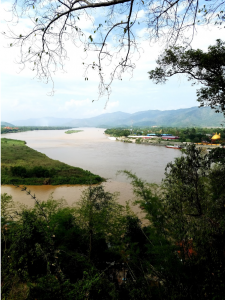 Ethnic minorities, migrants and stateless people are the most at risk of being trafficked in Thailand. Many trafficked victims come from neighboring countries such as Burma, Laos and China, often facing political persecution or poverty which can unintentionally put them in vulnerable positions for being trafficked. The transfer and exchange of trafficked victims are done primarily within the sub-region of the Mekong River. Trafficking gangs often collaborate with local law enforcements and businesses making it difficult to crack down on the parties involved.
Ethnic minorities, migrants and stateless people are the most at risk of being trafficked in Thailand. Many trafficked victims come from neighboring countries such as Burma, Laos and China, often facing political persecution or poverty which can unintentionally put them in vulnerable positions for being trafficked. The transfer and exchange of trafficked victims are done primarily within the sub-region of the Mekong River. Trafficking gangs often collaborate with local law enforcements and businesses making it difficult to crack down on the parties involved.
Trafficked victims are invisible to the public. As tourist, we were not aware that children or adults were trafficked and or being exploited until our conversation with our tour guide, Eve. We were advised specifically not to give money to persons performing acts on the street that presenting a certain demeanor because we would be supporting the continuation of their exploitation. It is refreshing to see the level of awareness that multiple organizations are doing to address the problem with human trafficking. Since Thailand’s economy relies so heavily on tourist, part of problem are reducing the demand on sex tourism and cheap labor. (Nhia)
Human trafficking in the Golden Triangle
Human trafficking and sex trafficking have always been something of interest to me. This past semester I was able to learn about the topic in more depth through one of my classes. I was shocked at how close to home human trafficking actually is. I have always heard it can happen anywhere, but it has more of an impact when you can see it or hear about it first hand. It is most prevalent in other countries. What got me interested in human trafficking was a video I watched in my class about human trafficking in the Golden Triangle in Thailand. I was most interested in this topic because of my upcoming study abroad opportunity to Thailand. This is why I have chosen to write my blog about human trafficking and sex trafficking.
First human/sex trafficking is happening everywhere. I will be focusing on the Golden Triangle. The Golden Triangle is distant from any urban metropolis. There are many poor families and the area is rural so there is a lack of education available. Due to this, many families are faced with financial issues. They become desperate and seek ways to provide for their families. Human traffickers will often visit this area with promising futures for daughters and son of the parents who are in need of money. They will usually say something about a better education in another country or a busy city. The parents see it as a win win situation because they are gaining financial stability and they believe their children are gaining a better future. This transaction is common and is unfortunately due to a lack of education and a lack of authority to supervise the area.
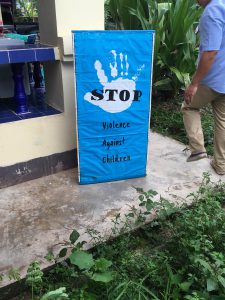 To bring it back to my class from last spring, I remember a video about an organization in Thailand that advocates for children who are in danger of being trafficked. In the first minutes of the video, it showed a silhouette of a man who was describing his first encounter with children who were offered to him for sex. He describes how a line of girls filled the room aging anywhere from 10-14. He also states that his friend had been before and continued to pick the same ten year old girl because she was a “nymphomaniac.” This was very disturbing. Coming to Thailand I have learned from P’ Eve and from our friend Maia, at a human trafficking shelter, that the sex industry here is manly used by older men and a lot of tourists come here for that attraction. It is known that human/sex trafficking is popular here because of the ages of the girls. Many pedophiles will come here in search of young men or women who are in the sex industry. In an article from humantrafficking.org they state that “Ethnic minorities and women and girls from the northern Hill Tribes are especially vulnerable due to their lack of citizenship.” This is something we have heard throughout our time here in Thailand. I can’t help but ask, why there isn’t more supervision in the Northern parts of Thailand. I also believe more access to education can help raise awareness for this issue. (Lindsey)
To bring it back to my class from last spring, I remember a video about an organization in Thailand that advocates for children who are in danger of being trafficked. In the first minutes of the video, it showed a silhouette of a man who was describing his first encounter with children who were offered to him for sex. He describes how a line of girls filled the room aging anywhere from 10-14. He also states that his friend had been before and continued to pick the same ten year old girl because she was a “nymphomaniac.” This was very disturbing. Coming to Thailand I have learned from P’ Eve and from our friend Maia, at a human trafficking shelter, that the sex industry here is manly used by older men and a lot of tourists come here for that attraction. It is known that human/sex trafficking is popular here because of the ages of the girls. Many pedophiles will come here in search of young men or women who are in the sex industry. In an article from humantrafficking.org they state that “Ethnic minorities and women and girls from the northern Hill Tribes are especially vulnerable due to their lack of citizenship.” This is something we have heard throughout our time here in Thailand. I can’t help but ask, why there isn’t more supervision in the Northern parts of Thailand. I also believe more access to education can help raise awareness for this issue. (Lindsey)
Efforts to prevent trafficking and support victim/survivors
While staying in Chiang Khong, we were fortunate enough to be invited by a woman named Maia to visit the Center for Girls (CFG),  an organization that works to prevent young girls from falling into the sex trafficking industry in Thailand. CFG–like the Chiang Dao School we visited earlier on our trip–shelters at-risk youth and provides them with education and their basic needs. The children are also able to stay in contact with their families back home. Maia said that CFG follows up with all of the girls who “graduate” out of the program, and it turns out that many of them go on to have jobs in the service industry and some even go on
an organization that works to prevent young girls from falling into the sex trafficking industry in Thailand. CFG–like the Chiang Dao School we visited earlier on our trip–shelters at-risk youth and provides them with education and their basic needs. The children are also able to stay in contact with their families back home. Maia said that CFG follows up with all of the girls who “graduate” out of the program, and it turns out that many of them go on to have jobs in the service industry and some even go on
to university. “We have a pretty good success rate,” she said with gentle pride.
In Minnesota we have some organizations, such as Breaking Free, that address sex trafficking as well. Breaking Free provides shelter, supplies, and support to victim/survivors of sex trafficking, works to eliminate human trafficking by educating the community, and campaigns to decriminalize victims so they can more easily escape and get help if they want it. During our visit to the Center for Girls, I wondered what it would be like to listen to a conversation between the staff from both organizations and hear them discuss human trafficking from different cultural lenses. It would be interesting to learn about their similarities and differences–in victories, strategies, and roadblocks–and see what sorts of inspiration they could draw from each other. (Anastasia)
Conclusion
It can be tempting for some people to assume that human trafficking only affects certain areas of the world, parts that are perceived to be less developed. However the truth is that it affects us all. While trafficking may vary in its visibility from place to place, the trauma of victims, their families, and communities have the same taste, no matter where they come from. The knowledge, emotions, and observations we have gathered in Thailand are applicable to the problems we face in Minnesota, and through this experience, I feel that we are in a better position to be able to serve and protect the people in our own neighborhoods. (Anastasia)
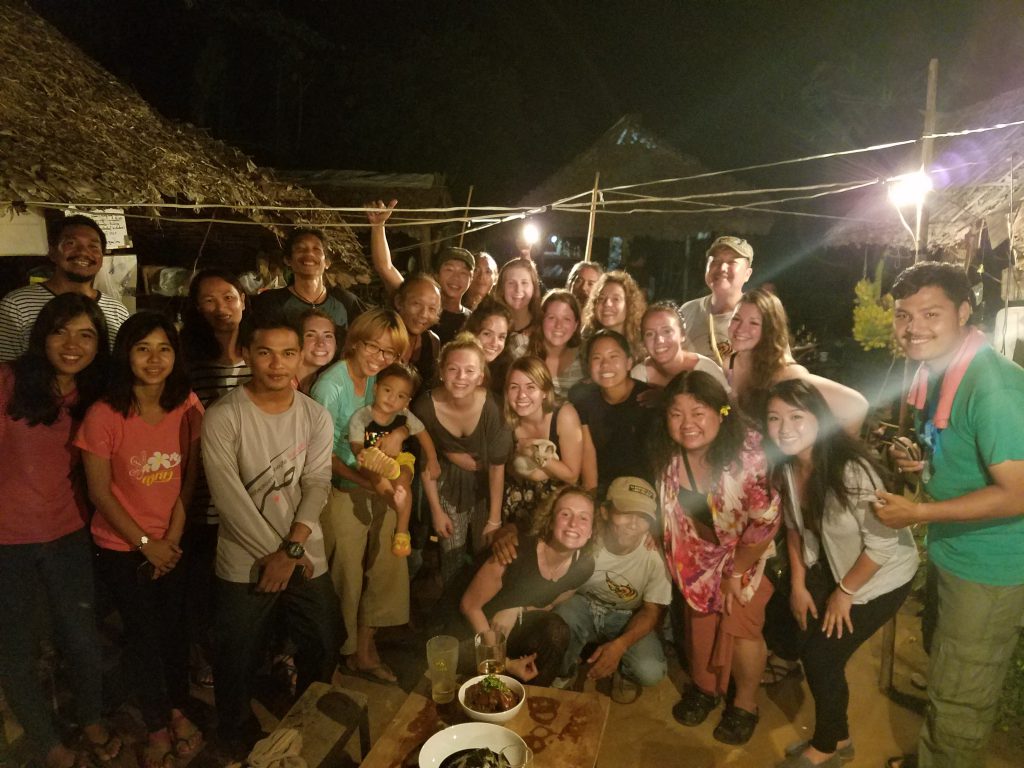

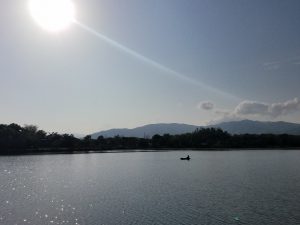
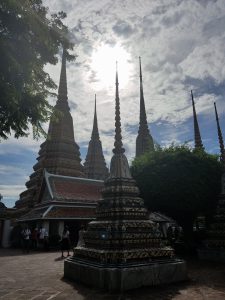

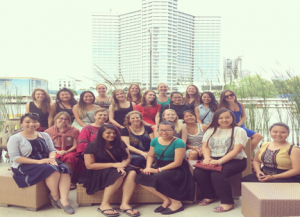
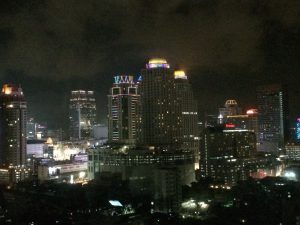
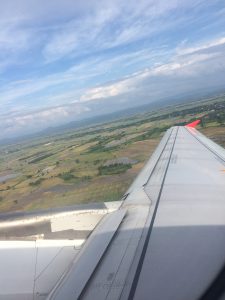
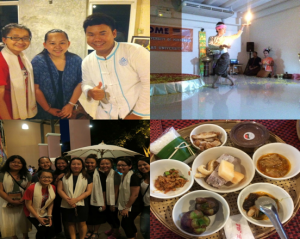

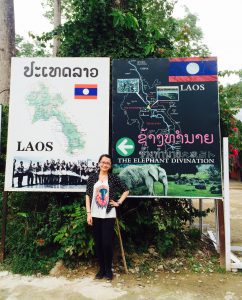

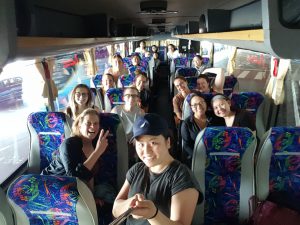


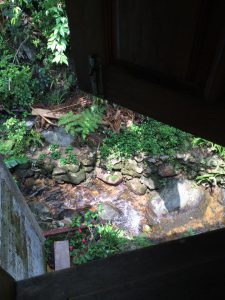
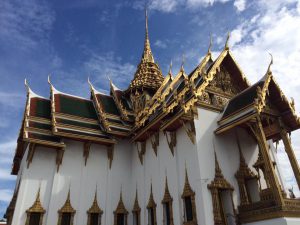
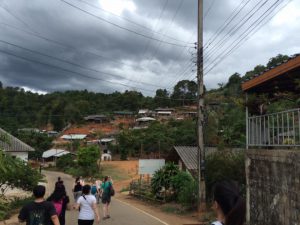



 Ethnic minorities, migrants and stateless people are the most at risk of being trafficked in Thailand. Many trafficked victims come from neighboring countries such as Burma, Laos and China, often facing political persecution or poverty which can unintentionally put them in vulnerable positions for being trafficked. The transfer and exchange of trafficked victims are done primarily within the sub-region of the Mekong River. Trafficking gangs often collaborate with local law enforcements and businesses making it difficult to crack down on the parties involved.
Ethnic minorities, migrants and stateless people are the most at risk of being trafficked in Thailand. Many trafficked victims come from neighboring countries such as Burma, Laos and China, often facing political persecution or poverty which can unintentionally put them in vulnerable positions for being trafficked. The transfer and exchange of trafficked victims are done primarily within the sub-region of the Mekong River. Trafficking gangs often collaborate with local law enforcements and businesses making it difficult to crack down on the parties involved.  To bring it back to my class from last spring, I remember a video about an organization in Thailand that advocates for children who are in danger of being trafficked. In the first minutes of the video, it showed a silhouette of a man who was describing his first encounter with children who were offered to him for sex. He describes how a line of girls filled the room aging anywhere from 10-14. He also states that his friend had been before and continued to pick the same ten year old girl because she was a “nymphomaniac.” This was very disturbing. Coming to Thailand I have learned from P’ Eve and from our friend Maia, at a human trafficking shelter, that the sex industry here is manly used by older men and a lot of tourists come here for that attraction. It is known that human/sex trafficking is popular here because of the ages of the girls. Many pedophiles will come here in search of young men or women who are in the sex industry. In an article from humantrafficking.org they state that
To bring it back to my class from last spring, I remember a video about an organization in Thailand that advocates for children who are in danger of being trafficked. In the first minutes of the video, it showed a silhouette of a man who was describing his first encounter with children who were offered to him for sex. He describes how a line of girls filled the room aging anywhere from 10-14. He also states that his friend had been before and continued to pick the same ten year old girl because she was a “nymphomaniac.” This was very disturbing. Coming to Thailand I have learned from P’ Eve and from our friend Maia, at a human trafficking shelter, that the sex industry here is manly used by older men and a lot of tourists come here for that attraction. It is known that human/sex trafficking is popular here because of the ages of the girls. Many pedophiles will come here in search of young men or women who are in the sex industry. In an article from humantrafficking.org they state that an organization that works to prevent young girls from falling into the sex trafficking industry in Thailand. CFG–like the Chiang Dao School we visited earlier on our trip–shelters at-risk youth and provides them with education and their basic needs. The children are also able to stay in contact with their families back home. Maia said that CFG follows up with all of the girls who “graduate” out of the program, and it turns out that many of them go on to have jobs in the service industry and some even go on
an organization that works to prevent young girls from falling into the sex trafficking industry in Thailand. CFG–like the Chiang Dao School we visited earlier on our trip–shelters at-risk youth and provides them with education and their basic needs. The children are also able to stay in contact with their families back home. Maia said that CFG follows up with all of the girls who “graduate” out of the program, and it turns out that many of them go on to have jobs in the service industry and some even go on



